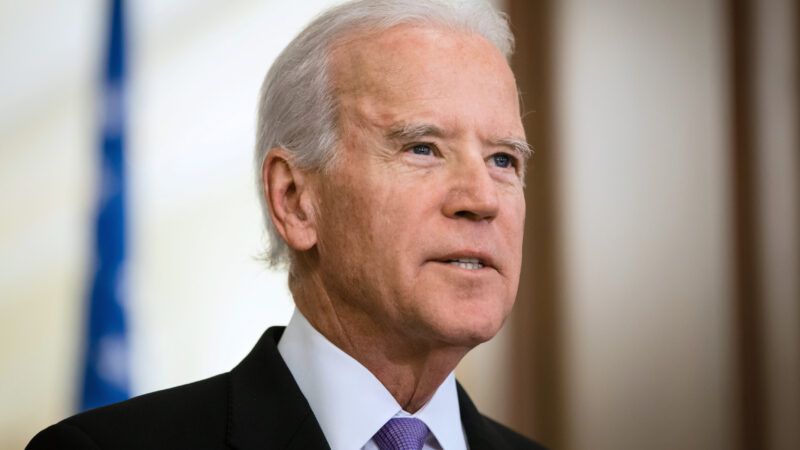Federal Court Temporarily Halts Biden's Student Loan Forgiveness Plan
It's the first of several court challenges to achieve any level of success. The Supreme Court rejected a separate challenge on Friday.

A federal court on Friday night temporarily blocked President Joe Biden's student loan forgiveness program, issuing a stay that will give judges time to review legal challenges to the scheme.
A day earlier, federal district Judge Henry Autrey had rejected a challenge brought by a group of Republican attorneys general from six states. Although the case raised "important and significant challenges" to Biden's student debt relief plan, Autrey ultimately ruled that the state governments lacked standing—that is, the right to bring a case based on a demonstration of harm and potential remedy.
That decision was immediately appealed to the Eighth Circuit Court of Appeals in St. Louis, which issued the administrative stay on Friday night. In the order, the court told the Biden administration to take no further action on the debt relief plan until full consideration of the case could occur.
In a statement, White House Press Secretary Karine Jean-Pierre said the ruling did not prevent student loan borrowers from applying to have their debts forgiven.
"It is also important to note that the order does not reverse the trial court's dismissal of the case, or suggest that the case has merit. It merely prevents debt from being discharged until the court makes a decision," she said. "We will continue to move full speed ahead in our preparations in compliance with this order."
Establishing standing is the first major hurdle in any legal challenge to the student debt plan—and it has proven to be a difficult one to clear. A lawsuit filed by the Pacific Legal Foundation (PLF), a libertarian law firm, was similarly dismissed by a federal judge for lacking standing last month. On Friday, the U.S. Supreme Court rejected without explanation a challenge brought by a Wisconsin-based taxpayer advocacy group.
Part of the problem is that the student debt relief plan seems to be a moving target—the administration has adjusted the rules and eligibility for the program several times since it was announced in August. One of those changes, seemingly in response to the PLF lawsuit, eliminated automatic approval of student debt forgiveness (which means students who might be financially harmed by having their debt removed no longer have standing to sue as they can merely opt out).
But the Biden student loan forgiveness scheme is going to cost taxpayers an estimated $400 billion in order to transfer a staggering amount of wealth to people who in most cases are already quite well off. The whole thing is based on a legally dubious reading of a post-9/11 law that allowed the president to forgive student loans for first responders—and rest on Biden's pandemic emergency powers, despite his own admission that the pandemic is over. Surely, someone must have standing to sue over this.
So when a federal judge says there are "important and significant" issues for the courts to sort through here, that's quite an understatement. Friday night's order from the Eighth Circuit should be only the first step towards a thorough legal review of this expensive, unnecessary, and legally fraught proposal.


Show Comments (100)